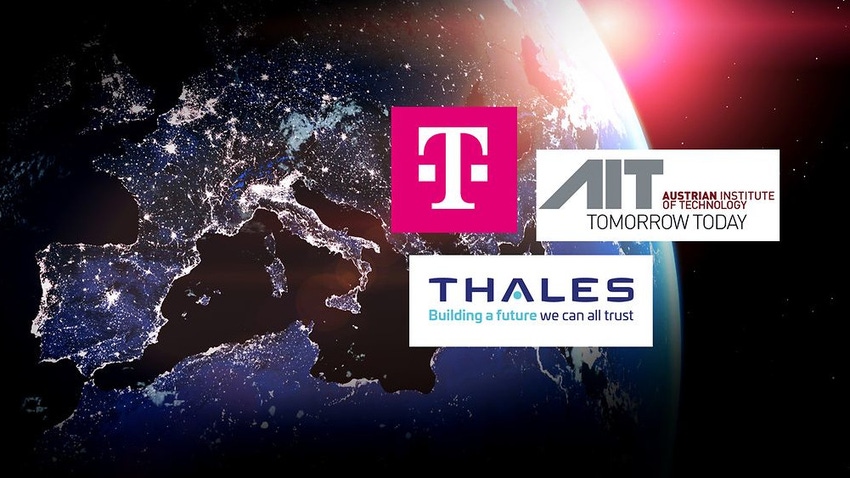EU ploughs on with plan to reinforce comms networks with quantum level defences
A consortium of firms led by Deutsche Telekom – called Nostradamus – has been commissioned to build some testing infrastructure in order to infuse quantum defence firepower within European comms networks.
January 16, 2024

The consortium, members of which also include Thales, the Austrian Institute of Technology and other unnamed experts from across industry and academia, will build a ‘testing infrastructure’ for quantum key distribution (QKD), which it says will enable the evaluation of European manufacturers’ QKD devices.
Why? Because this paves the way for the implementation of the European Quantum Communication Infrastructure (EuroQCI) – described as ‘a highly secure pan-European communication network based on quantum technology.’ The governments of all EU member states and their citizens stand to benefit from more secure critical infrastructure, we’re informed.
Quantum Key Distribution uses the principles of quantum mechanics to better secure communication – as the release puts it: “The keys for decoding information are sent using single photons (quantum light particles). Any attempt to intercept these photons leaves traces in their physical state and can be used to indicate possible eavesdropping. This technology ensures fundamentally secure data exchange. QKD represents the pinnacle of cyber security.”
In February last year it was announced that Deutsche Telekom had been picked by the European Commission to coordinate the building of Euro QCI, so presumably this is the next step in that process, almost a year later.
Back then it seemed to be referred to as the Petrus project, a moniker which seems to have been dropped. This latest announcement sounds like it's mainly about setting up a process of manufacturer and technology selection for building the whole thing out.
EuroQCI is intended to provide more security for data centres, communications networks and critical infrastructure such as hospitals and power plants through fiber and satellite channels. ‘Quantum physics provides additional protection against new threats for today’s communication networks,’ says the release, and it also says this will be a key pillar of the EU's strategy for cyber security in the coming decades.
The EU’s in-progress satellite network IRIS2 will also be plugged into EuroQCI. IRIS2 is described as the third pillar of the EU's space infrastructure providing satellite internet – alongside Galileo which does navigation and Copernicus which is used for earth observation. The first IRIS2 services are due to be launched this year, with full operation planned for 2027.
“Nostradamus exemplifies Deutsche Telekom’s commitment to pushing the boundaries of digital security,” said Daniela Theisinger, Managing Director of Deutsche Telekom Global Business Belgium. “This collaborative effort not only enhances European cybersecurity but also underscores the importance of strategic partnerships in advancing technological resilience.”
Joan Mazenc, Head of Thales ITSEF (IT Security Evaluation Facility), added: “Thales is particularly proud to contribute to the protection of the EU communications networks and infrastructure. As a leader in advanced technologies, the Group is determined to develop an attack laboratory aimed at responding to quantum threats. This laboratory will identify methods for evaluating ground-based quantum key devices, based on fiber optic technology.”
The emphasis of the release almost sound as if it’s just providing a bit more of a defence layer against the current type of cyber attacks. But perhaps more significantly QKD has been dubbed by some as vital in a future where bad actors may get their hands on some form of quantum computing to supercharge their attacks, which in theory ‘standard’ security measures wouldn’t be able to do much to stop. To be fair Thales does throw in a mention to ‘quantum threats’ in its canned quote, though.
About the Author(s)
You May Also Like








.png?width=300&auto=webp&quality=80&disable=upscale)


_1.jpg?width=300&auto=webp&quality=80&disable=upscale)


.png?width=800&auto=webp&quality=80&disable=upscale)